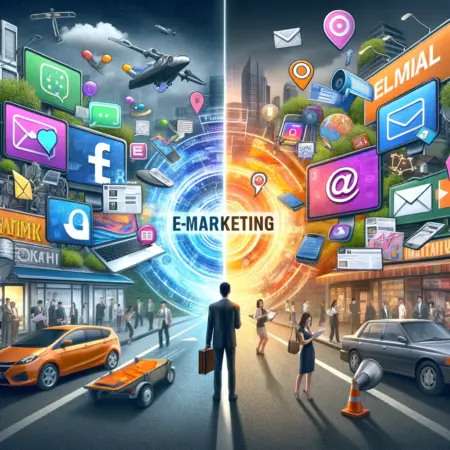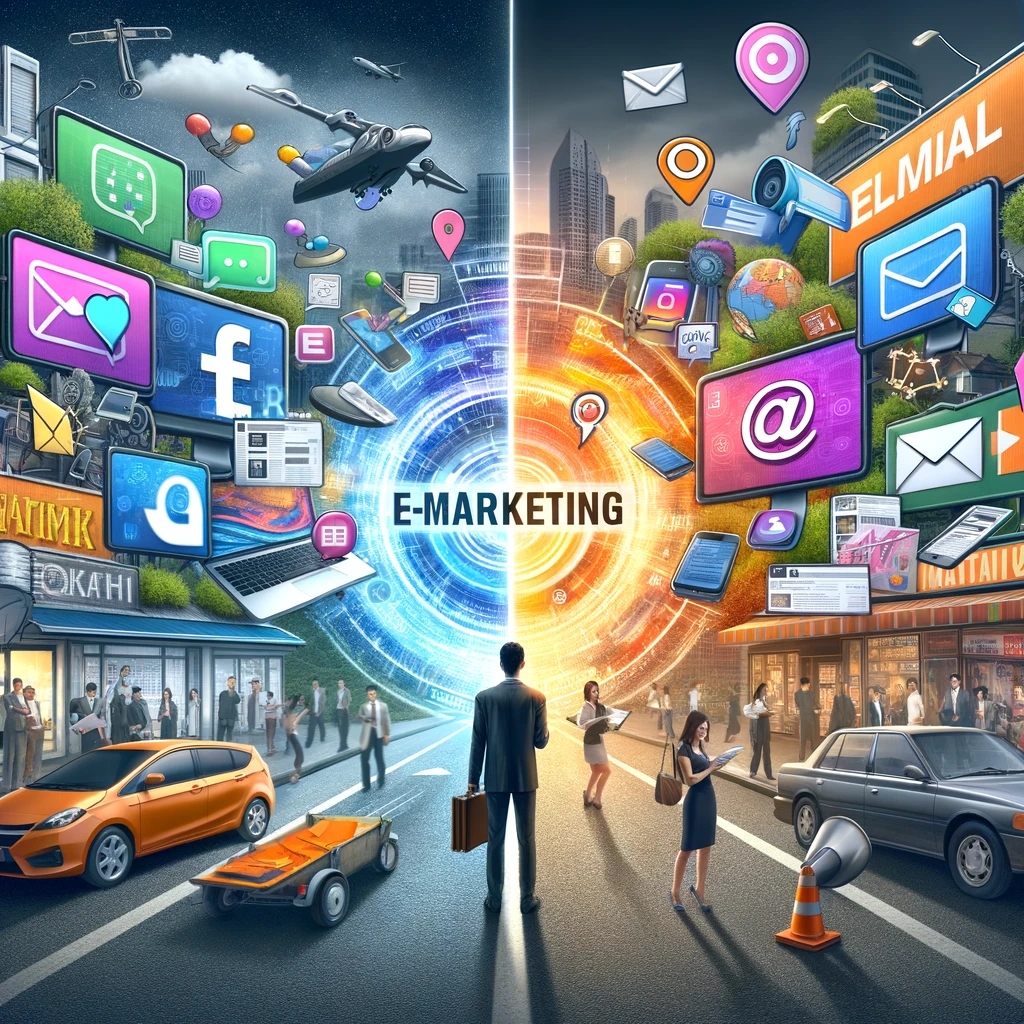Discover how e-marketing differs from traditional marketing. Explore the strategies and tactics of each approach and decide which one suits your business goals better.With the rise of digital technologies, e-marketing has become a prominent force in the business world. But how does it differ from traditional marketing? In this article, we will explore the key differences between e-marketing and traditional marketing, highlighting the unique advantages and strategies of each approach.
How Does E-Marketing Differ from Traditional Marketing?

E-marketing, also known as digital marketing, differs from traditional marketing in several key ways:
- Medium: The most obvious difference is the medium used to deliver the marketing message. E-marketing utilizes digital platforms such as websites, social media, email, and search engines. Traditional marketing relies on physical mediums like print (newspapers, magazines), broadcast (TV, radio), direct mail, and outdoor advertising (billboards, flyers).
- Targeting and Personalization: E-marketing allows for more precise targeting and personalization of messages. Digital tools enable marketers to target specific demographics, geographic locations, interests, and even individual online behaviors. Traditional marketing is broader and less personalized, often targeting a general audience.
- Interactivity and Engagement: Digital marketing offers greater opportunities for interactivity and engagement. Through social media, blogs, and online forums, businesses can engage directly with their customers, receive immediate feedback, and foster a community around their brand. Traditional marketing is typically one-way communication.
- Analytics and Measurability: The success of e-marketing campaigns can be measured more accurately and in real-time through analytics tools. These tools provide detailed insights on metrics like click-through rates, engagement, conversion rates, and ROI. In contrast, measuring the effectiveness of traditional marketing methods can be more challenging and less precise.
- Speed and Adaptability: E-marketing campaigns can be launched quickly and modified in real-time based on performance data or changing market trends. Traditional marketing campaigns often require more time for development and production, and once launched, they are more difficult to alter.
- Cost-Effectiveness: Generally, e-marketing can be more cost-effective, especially for small businesses. Creating and distributing digital content can be less expensive than producing and disseminating physical marketing materials. However, the cost-effectiveness can vary based on the scale and scope of the marketing strategy.
- Reach: Digital marketing can reach a global audience rapidly, making it ideal for businesses looking to expand their reach beyond local or national boundaries. Traditional marketing is often more effective for targeting local markets.
- Sustainability: E-marketing is often considered more environmentally friendly as it relies on digital channels, reducing the need for physical materials. Traditional marketing often involves materials like paper and ink, which have a greater environmental impact.
Both e-marketing and traditional marketing have their unique advantages and can be effectively integrated in a comprehensive marketing strategy, depending on the business goals, target audience, and budget.
Conclusion
In conclusion, e-marketing and traditional marketing employ different strategies and tactics to achieve similar goals. E-marketing embraces the digital realm, leveraging the power of the internet and digital channels to reach a global audience. On the other hand, traditional marketing relies on more traditional methods such as print, TV, and radio to promote products and services.
